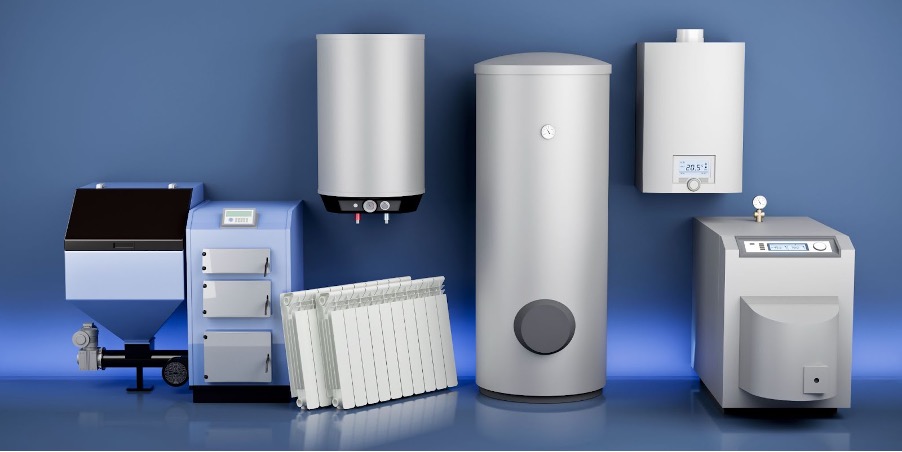Share

A reliable hot water system is essential to the comfort and convenience of any Australian home. Hot water is indispensable, whether it’s taking a warm shower on a chilly morning or washing dishes after a family dinner. Australia’s diverse climate and growing emphasis on sustainable living mean that selecting the right system is an environmental and economic decision. This guide will help navigate the complexities of choosing a hot water system by exploring different types, key factors, energy efficiency, costs, and maintenance tips.
Understanding Different Types of Hot Water Systems
When considering what type of hot water system is suitable, understanding the different options available is crucial.
Conventional Storage Tank Systems
Conventional storage tank systems remain a popular choice for many Australian households. These systems use a tank to heat and store water, providing a ready supply of hot water. The key advantage of storage tanks is their ability to deliver hot water quickly and in large quantities, making them ideal for larger families or homes with high water usage.
However, conventional systems can be less energy-efficient as they continuously heat water, even when not in use. The risk of heat loss due to poor tank insulation is a downside, which can contribute to higher energy bills. Properly sizing a tank according to household needs is essential to minimise wastage and ensure efficiency.
Tankless or Continuous-Flow Systems
Tankless or continuous-flow systems heat water on demand rather than maintaining a reservoir. This approach can lead to significant energy savings, as there is no standby heat loss. They’re an excellent choice for smaller households or those seeking an energy-efficient alternative.
These systems can be more expensive upfront but often offer cost savings over time, thanks to their efficiency. One consideration, however, is their ability to deliver hot water simultaneously across multiple outlets. It’s wise to assess usage patterns and possibly integrate multiple units for larger homes.
Heat Pump Water Heaters
Heat pump water heaters are particularly suited to the Australian environment, capitalising on ambient heat in the air to heat water. They are incredibly energy-efficient as they use electricity to transfer heat rather than generate it directly. Perfect for temperate regions, these systems can drastically lower energy consumption compared to electric or gas heaters.
The initial cost might be higher, but government incentives can alleviate the burden. The long-term savings on energy bills and reduced carbon footprint make heat pumps a smart investment in sustainability.
Solar Hot Water Systems
Solar hot water systems are the most environmentally friendly option. By harnessing the sun’s power, these systems significantly reduce reliance on conventional energy sources. Installing solar panels and either solar storage tanks or a booster system can lead to considerable savings over time.
Although solar systems have a higher upfront cost, Australian homeowners may benefit from government incentives, such as rebates or grants, designed to encourage solar adoption. Factors like sunlight exposure and roof space should be considered when opting for solar, as efficiency depends largely on these variables.
Key Factors to Consider When Choosing a Hot Water System
Selecting the ideal hot water system involves a detailed analysis of several factors:
Household Size and Hot Water Demand
Understanding the hot water needs of a household is the first step. Larger families typically require systems with quicker recovery rates or larger capacity, while smaller households may benefit from more compact, efficient options. Accurately assessing water usage patterns ensures the chosen system can meet demand without excess energy wastage. Doing so also brings you one step closer to finding the best hot water system for your home—one that balances performance, efficiency, and cost for your specific living situation.
Climate Considerations Across Australian Regions
Australia’s unique climate variations necessitate careful consideration when selecting a hot water system. For instance, homes in regions with moderate temperatures might find heat pumps or solar systems ideal. At the same time, those in cooler areas might require systems with efficient heating elements or insulation to maintain optimal functionality.

Energy Efficiency Ratings and Potential Cost Savings
Energy efficiency is a paramount consideration, not only for reducing environmental impact but also for long-term financial savings. Look for systems with high Energy Star ratings, which indicate superior efficiency. Evaluating the lifecycle costs, including potential savings on utility bills, helps in making an informed decision that balances initial and operational expenses.
Installation Space and Potential Constraints
The physical space available for installation can limit the choice of hot water systems. Consider where a unit will be housed, whether in a garage, basement, or outdoors, and if there are any spatial constraints. Ensure there is adequate ventilation for heat pumps and appropriate exposure for solar panels. Engaging a professional to assess the installation site can preempt potential issues.
Energy Efficiency and Environmental Impact
The environmental impact of water heating systems is significant, influencing household carbon footprints and energy consumption.
Energy Star Ratings for Hot Water Systems
The Energy Star rating system provides an easy way to compare efficiency levels among different water heaters. A higher rating generally signifies better performance and greater savings on energy bills. Prioritising high-rated systems contributes to reduced energy consumption and a lessened environmental impact.
Carbon Footprints of Various Systems
Different systems come with varying levels of greenhouse gas emissions. Traditional electric heaters tend to have larger carbon footprints, whereas solar and heat pump systems are far more eco-friendly. Understanding the carbon implications of each option can guide homeowners towards more sustainable choices, meeting both short-term savings and long-term environmental goals.
Reducing Greenhouse Gas Emissions
Homeowners can significantly reduce their carbon emissions by integrating solar or hybrid systems. These systems not only lower reliance on non-renewable energy but also often receive favourable treatment from government policies aimed at encouraging sustainable practices. With the right system, achieving a lower carbon footprint becomes a feasible target.
Government Rebates and Incentives
Governments offer incentives and rebates designed to offset the upfront costs associated with installing eco-friendly water heaters. By taking advantage of these programmes, individuals can reduce the financial burden and gain access to sustainable technology at a more manageable cost. Familiarising oneself with available programmes and requirements is advisable.
Cost Considerations and Budgeting
Financial elements play a crucial role in the decision-making process for a new hot water system.
Initial Costs Versus Long-Term Savings
While initial purchase costs vary, considering the total cost of ownership helps in understanding the financial implications better. Some systems may appear more costly upfront but offer considerable savings over time in terms of energy usage and maintenance, making them a wise investment.
Maintenance Costs and Lifespan
Some systems require more frequent maintenance than others, impacting their overall cost-effectiveness. For example, while solar systems require periodic cleaning and panel inspections, tank systems may necessitate regular tank flushing or part replacements. Understanding the expected lifespan and associated costs of maintenance ensures efficient budgeting.
Financing Options and Government Support
There are numerous financing schemes and government initiatives designed to make transitioning to energy-efficient systems more accessible. From low-interest loans to outright grants, exploring these options can ease the financial planning process. Always assess the terms and conditions to find the best support arrangement.
Setting a Realistic Budget
Balancing efficiency and cost within a realistic budget is essential. It involves estimating initial costs, potential rebates, operational expenses, and long-term savings. A carefully planned budget ensures a system that meets household needs without compromising financial stability, allowing for a seamless adoption of sustainable technology.

Installation and Maintenance Tips
Proper installation and maintenance are pivotal to the optimal performance of any hot water system.
Professional Installation and Finding Licensed Installers
Securing professional installation guarantees compliance with safety standards and maximises system efficiency. Choosing a licensed installer with experience in the specific type of system installed is crucial. Look for professionals certified by reputable industry bodies, and check for references or customer feedback before proceeding.
Regular Maintenance Practices
Routine checks and maintenance enhance the longevity and efficiency of hot water systems. Regularly test safety valves, check for leaks, and ensure proper venting for gas systems. Scheduling annual inspections with professionals can preempt issues and protect the system’s lifespan.
Troubleshooting Common Issues
Understanding common issues that arise, such as fluctuating water temperatures or unusual noises, empowers homeowners to address minor problems before they escalate. Keep a handy reference of troubleshooting tips and know when it’s time to call a professional. Prompt attention to irregularities can save on costly repairs.
Safety Guidelines and Warranty Considerations
Safety in operation and handling is non-negotiable. Units should always comply with standard safety guidelines, and installations should consider emergency shutoff protocols. Additionally, thoroughly understanding the warranty terms can provide peace of mind, ensuring coverage for potential malfunctions during the specified period.
Conclusion
In summary, choosing the ideal hot water system involves a comprehensive examination of needs, options, and long-term impacts. From various system types to consider—each with unique benefits and drawbacks—to understanding the significance of energy efficiency, cost, and sustainability, there are numerous factors to weigh carefully. Choosing a system aligned with household needs and environmental goals not only accentuates personal comfort but also contributes positively to economic and environmental well-being. With sustainability at the forefront of household upgrades, making informed, eco-friendly decisions is crucial to support a healthier future. Encourage thoughtful assessments and seek professional advice to make the most suitable choice. A call to action: Embrace energy-efficient, environmentally conscious systems for a brighter tomorrow.
Related Posts
Discover more from Tech Digest
Subscribe to get the latest posts sent to your email.











Leave a Reply